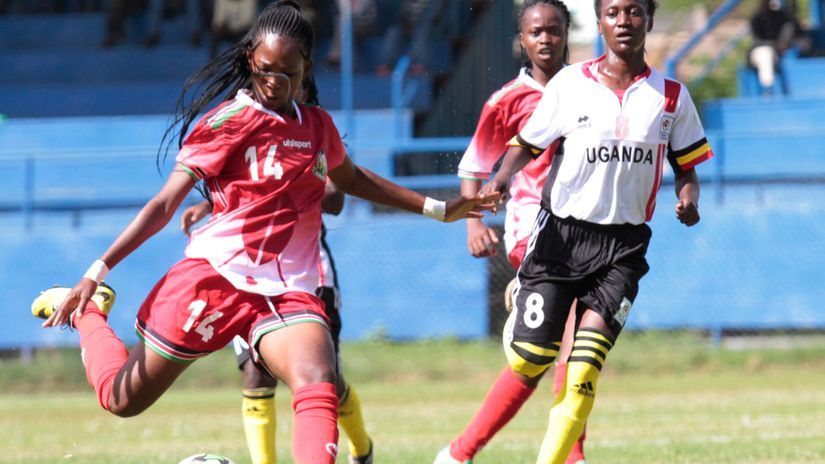Kenyan international Esse Akida has opened up on the challenges and fears she grappled with in her first stint outside the country.Akida is one of the long-serving members of the Harambee Starlets squad with a national team career spanning over a decade, having made her debut in 2012.In her recently launched book titled Chained, the 31-year-old striker, for the first time, explained how it was when she first left the country for then-Israel Women’s Premier League club Hapoel Morasha Ramat HaSharon.##NAJAVA_MECA_8342684##“Hapoel Nir Ramat HaSharon had everything ready for me. The deal came at a time when I was so ready for professional football and to date, I think it was God’s way of answering a long-time prayer,” reads an excerpt in Chained.In as much as she was happy to make the move, the fear of the unknown also engulfed her. CHAINED: Esse Akida offers glimpse into Harambee Starlets’ CECAFA journey in 2016The fact that she was first going for trials, before she could be signed permanently by the club, did not entirely give her peace of mind.“The uncertainty in me was too much going by what I had read from the country Israel. And considering I was still going for a trial period, the pressure was just too much. What would happen if I failed? Were there people I could depend on if things went south in that country? What of the culture? The weather? Language barrier? The food? There were just a lot of questions that I didn’t even enjoy my flight that much,” read another extract from the book.The former Thika Queens striker further disclosed, that she could not help but notice, the difference in which the men’s and the women’s teams were treated, which seemed exactly like what was happening in Kenya.Chained: Esse Akida reveals new project on a “different life”“I saw the wide gap between men’s and women’s football. While colleagues back at home thought I was living the best of lives, the environment was more or less the same as the teams I had been in before, the difference only being that I was doing the same things in a different country. We would do our laundry and replenish our food, the only difference being that I was now living in a clubhouse and wasn’t expected to pay house rent,” added another piece of the book.More of Akida’s story can be found by purchasing her book, which was recently launched in partnership with Mozzart Sport

